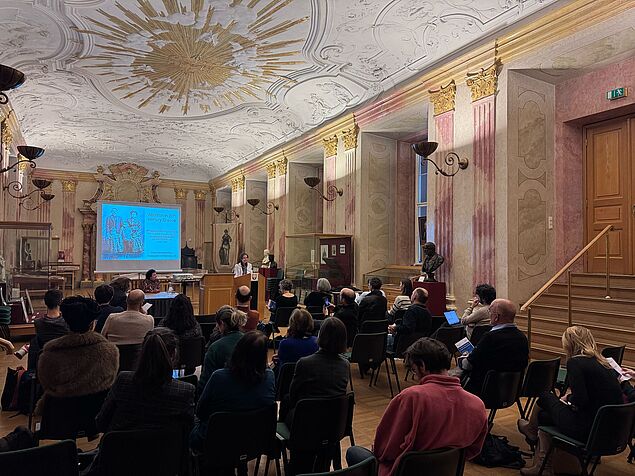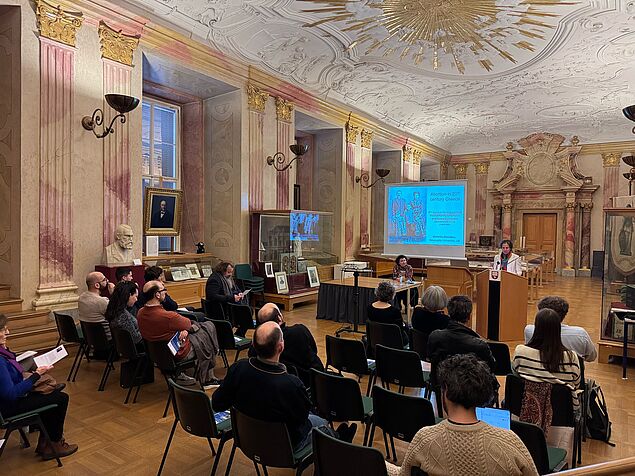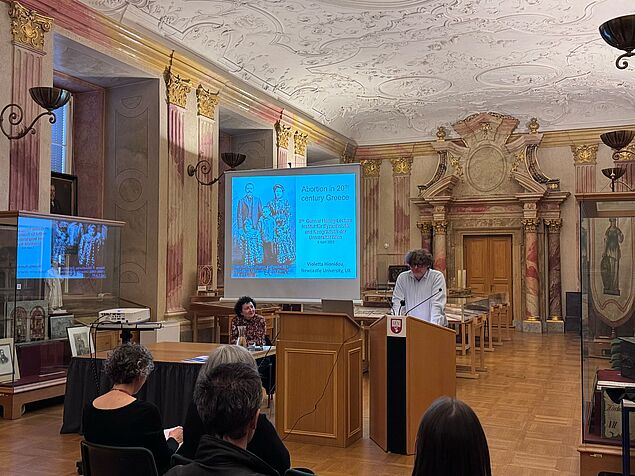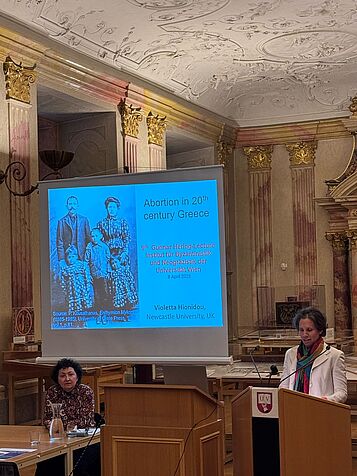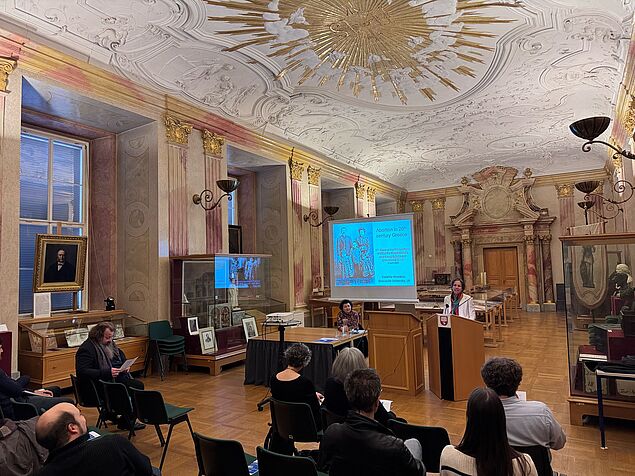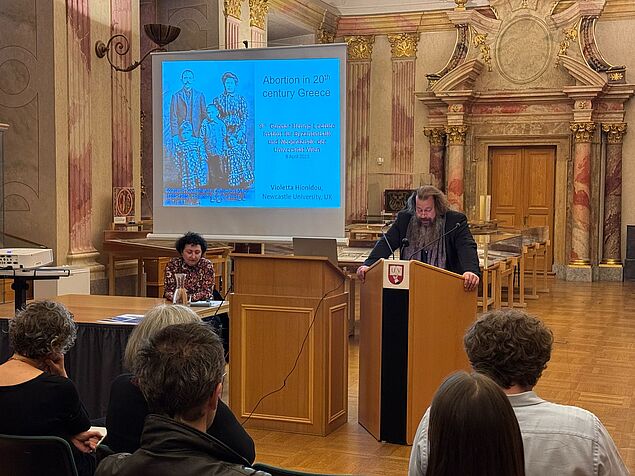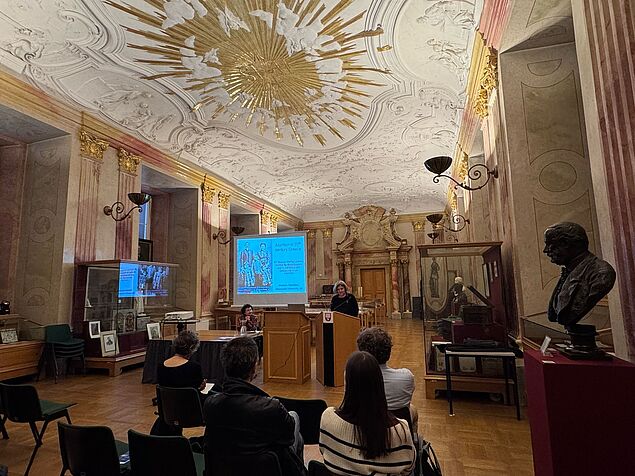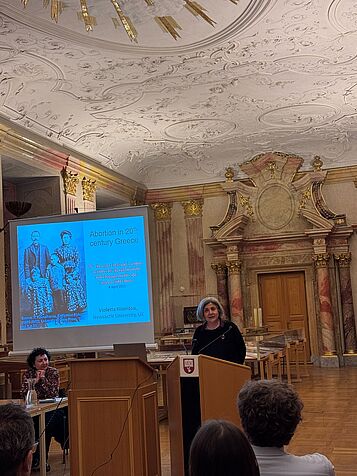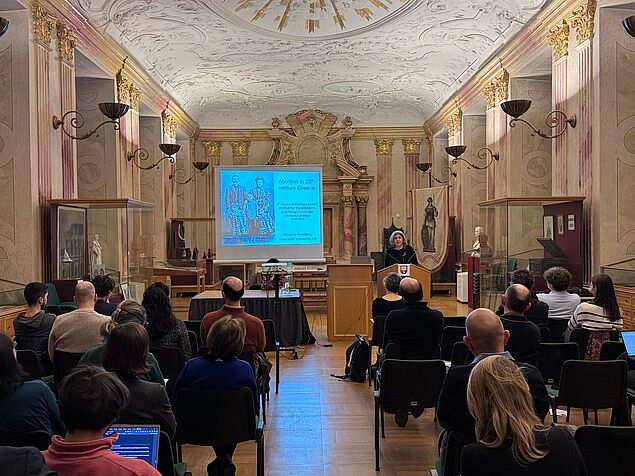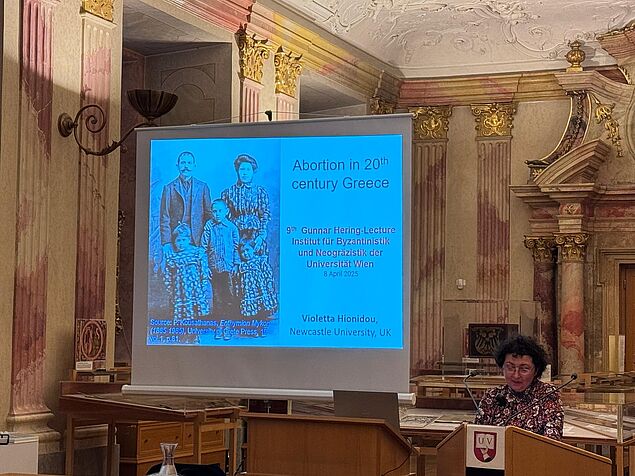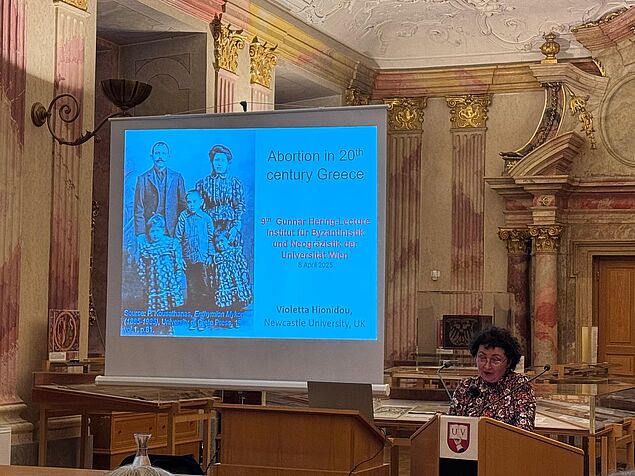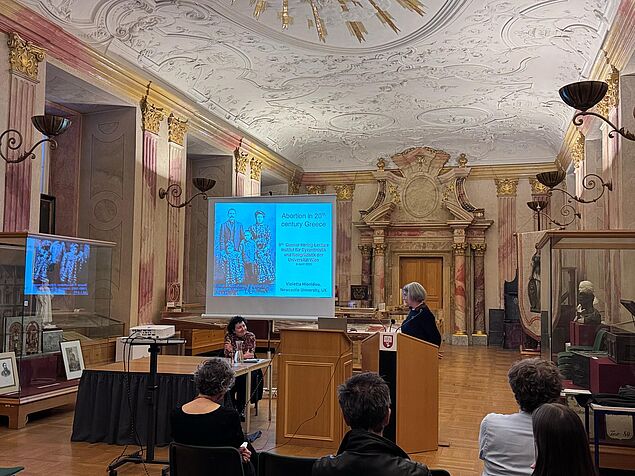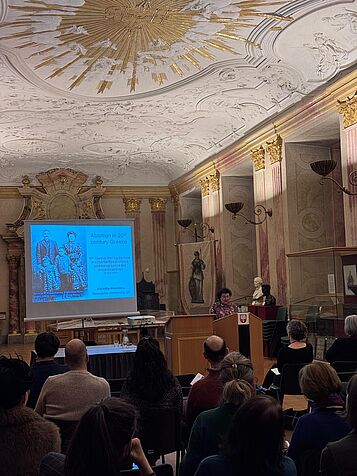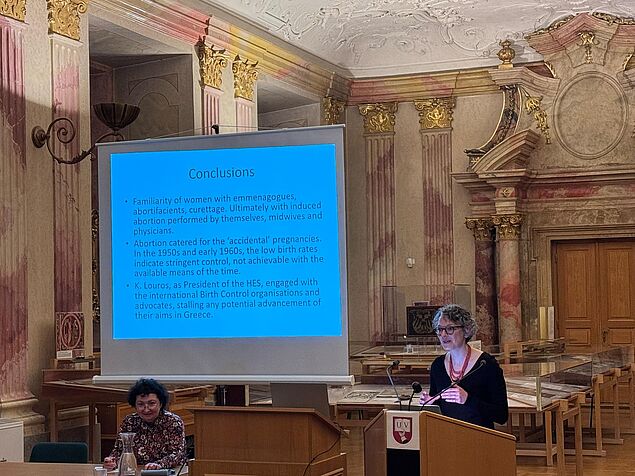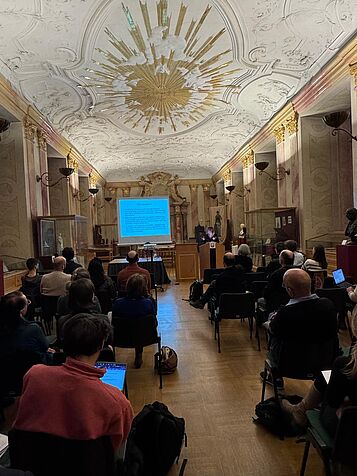9th Gunnar Hering-Lecture

9th Gunnar Hering-Lecture
Took place on April 8, 2025.
This year's invited speaker was
Prof. Violetta Hionidou (Newcastle)
who was followed by
Prof. Paulina Sliwa (Universitz of Vienna)
“Abortion in 20th century Greece”
Abstract:
Couples in Greece started controlling the number of children they had (in a parity specific way) in the early 1930s. By the early 1960s, most Greek couples had a very small number of children. While pre-WWII couples were clear that they did not – and could not – fully control their fertility and neither did they have a ‘desired’ number of children, those in the 1950s were much more
determined to fully control their fertility. Since no major changes in contraceptive availability or efficiency had taken place since the 1930s, the answer has to be found in the wider availability, acceptability and use of surgical abortion. This presentation will explore when, how and why abortion became such an important method of birth control in Greece. It will explore the intersections of popular culture, law, religion and medicine in bringing a wide acceptance and practice of abortion as a birth control method in Greece.
Biography:
Violetta Hionidou is a professor of Modern European history at the University of Newcastle (UK), after having taught at the University of Southampton, the University of Crete and the Ionian University (Corfu). Her research focuses on famines; birth control, abortion and fertility in historical populations; popular and modern medicine; family history and women’s work; questions of refugee experiences. She is among other associations a Fellow of the Royal Historical Society, the British Society of Population Studies and the European Society of Historical Demography and was a Visiting fellow at the Seeger Center for Hellenic Studies in 2019. She has led numerous research projects with EU and UK funding. She has published widely in journals and collected volumes, while her monographs Famine and Death in Occupied Greece 1941-1944. CUP 2006, and Abortion and Contraception in Modern Greece 1830-1967. Palgrave Macmillan 2020, have won international acclaim and were translated into Greek in 2011 and 2020 respectively.
In cooperation with:
ÖGNS/Austrian Society of Modern Greek Studies
Department of Byzantine and Modern Greek Studies
Faculty of Historical and Cultural Studies of the University of Vienna
Contact: maria.stassinopoulou@univie.ac.at, ioannis.brigkos@univie.ac.at

